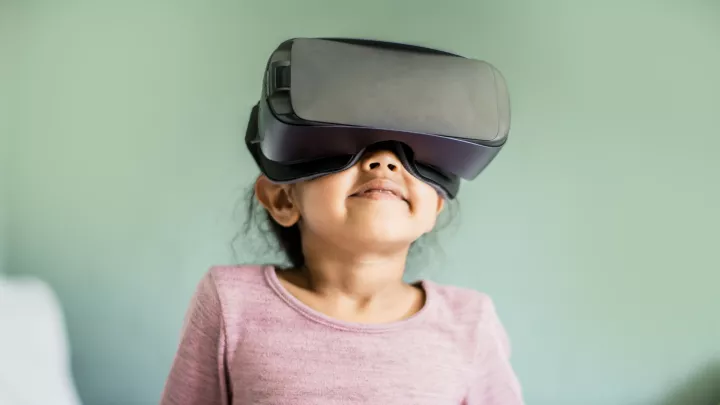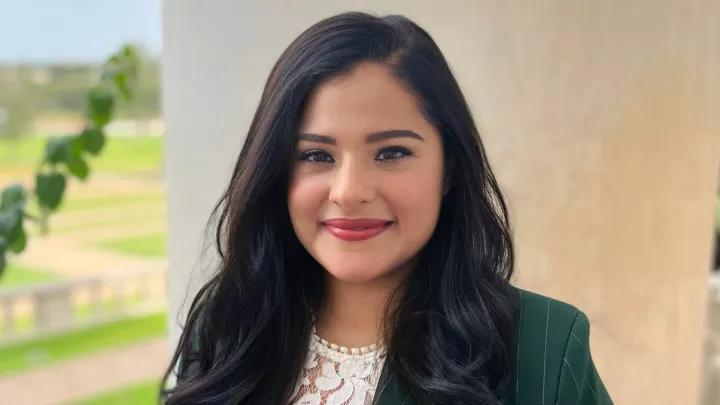Biobehavioral Pain Laboratory: About the Lab
The Biobehavioral Pain Laboratory conducts research on pain and pain management interventions for children and adolescents who are treated at CHLA. Through point-of-care and longitudinal assessments, we investigate the efficacy of interventions designed to decrease acute and chronic pain in addition to improving overall pediatric/adolescent health outcomes and healthcare experiences.
Funded Studies and Grants
Carl F. Braun Trustees - “Integrative Medicine Program”
Description: The primary objective of the grant is to deliver integrative medicine (IM) practices (I.e., acupuncture, massage, biofeedback, mindfulness, and yoga) and to evaluate the impact of these IM practices on several health outcomes (I.e., pain, sleep, mood, function) and critical health economic parameters, such as ED visits, length of stay, medication usage and patient/family satisfaction.
Role: Principal Investigator
The Pritzker Family Foundation - “Neurofeedback for Emotional Regulation in Pediatric Patients”
Description: The goal of this project is to train clinicians in the use of neurofeedback for treating pediatric patients with emotional dysregulation and upregulated arousal in the context of a range of mental health conditions. Secondarily, this project aims to conduct a program evaluation across the sites participating in training and their clinicians referred to as the “community of practice” (CHLA, UCLA Semel Institute, UCLA TIES, Violence Intervention Program, Seventh Generation/UAII, and UCLA STAR Clinic). The objective of the program evaluation is to collect data on the feasibility and acceptability of this treatment approach for clinician uptake to inform subsequent efficacy studies and support relevant social policies (e.g., MediCal reimbursement for neurofeedback) to promote health equity and access.
Role: Co-Principal Investigator
HRSA - Graduate Psychology Education (GPE) - “Enhancing Capacity to Prevent and Treat Opioid Use Disorders through Expanded Community Integrated Care Partnerships Within an Urban, Underserved Population”
Description: Children’s Hospital Los Angeles (CHLA) Psychology Program faculty have developed this proposal to enhance the APA-accredited training of health psychology post-doctoral fellows to provide integrated, interdisciplinary, behavioral health and opioid use disorder (OUD) and other substance use disorder (SUD) services. Goal I aims to provide didactic training for doctoral psychologists to enable them to provide in-person and tele-behavioral health integrated interdisciplinary trauma-informed OUD/SUD screening, prevention, treatment, and recovery services focusing on underserved pediatric populations in high need, high demand areas. Goal II aims to enhance the ability of doctoral psychologists to provide integrated interdisciplinary OUD/SUD trauma-informed services in high-need and high demand areas to increase access and reduce barriers to care. Goal III focuses on sustainability efforts by enhancing the ability of clinical faculty, field supervisors, and interdisciplinary staff to provide integrated trauma-informed OUD/SUD services and supervision and to develop and implement a sustainability plan.
Role: Co-Investigator
Mr. and Mrs. Paul Bennett Foundation - “VR for Stress and Pain Management”
Description: Virtual reality (VR) will be used to deliver a direct clinical service line for stress and pain management in children undergoing routine painful medical procedures. VR will be delivered and evaluated in a variety of clinical areas including, but not limited to phlebotomy, radiology, infusion center, emergency department, and the pre-surgical operating area to assist in the management of stress and pain associated with painful medical procedures (e.g., IV start, PICC lines, mask induction) and the stress associated with surgery.
Role: Principal Investigator
Research Studies
“Enhancing Capacity to Prevent and Treat Opioid Use Disorders through Expanded Community Partnerships and Tele-Mental Health Strategies within an Urban, Underserved Population”
Grant Number: Graduate Psychology Education (GPE) Program HRSA-19-002
Role: Co-Investigator Year: 2019-2022
Description: CHLA Psychology Program faculty propose to enhance the APA-accredited training of health psychology post-doctoral fellows to provide integrated, interdisciplinary, behavioral health and opioid use disorder (OUD) and other substance use disorder (SUD) services. Goals include training post-doctoral fellows to provide interdisciplinary screening, prevention, and treatment service in underserved communities as well as training in tele-behavioral health technology.
“Virtual Reality in Pediatrics”
Cancer Free Generation and the Board of Tower Cancer Research Foundation - “Virtual Reality in Pediatrics”
Year: 2019-2020
Description: VR will be studied in acute procedural medical situations, with increased attention toward chronic management of pain, anxiety, depression and stress associated with a variety of chronic medical health conditions. Through non-medication interventions (and non-pharmacological interventions partnered with medications), an ideal outcome would support specific VR applications for certain health conditions. Effecting change, wellness and improved overall health is best achieved when the “whole” child, biological, psychological and social aspects, is considered.
“Medical Marijuana, Emerging Adults & Community: Connecting Health & Policy”
Grant Number, Agency: NIH/NIDA (RO1) (PI: Stephen Lankenau)
Role: Consultant
Year: 2012-2022
Description: The overall objective is to determine the impact of medical marijuana on young adults’ physical and psychological health, since no studies have yet examined it. The central hypothesis is that young adult medical marijuana patients show evidence of different histories, behaviors and trajectories compared to young adults who are recreational or non-medical marijuana users. Findings will inform medical marijuana policy at the local, state and national levels so that young adults, either with or without recommendations for medical marijuana, will lead healthy and productive lives.
“Pain In Child Health (PICH), an innovative, international, transdisciplinary research training consortium”
Grant Number, Agency: Canadian Institutes of Health Research, Strategic Training Initiative in Health Research (STIHR) Stevens, B.J., Chambers, C.T., Craig, K.D., Finley, G.A., Grunau, R.E., Johnston, C., Pillai Riddell, R.R., Stinson, J., & von Baeyer, C.L.
Role: Collaborator
Year: 2009-2019
Description: Pain in child health: an innovative, international, transdisciplinary research training consortium (Phase II)

